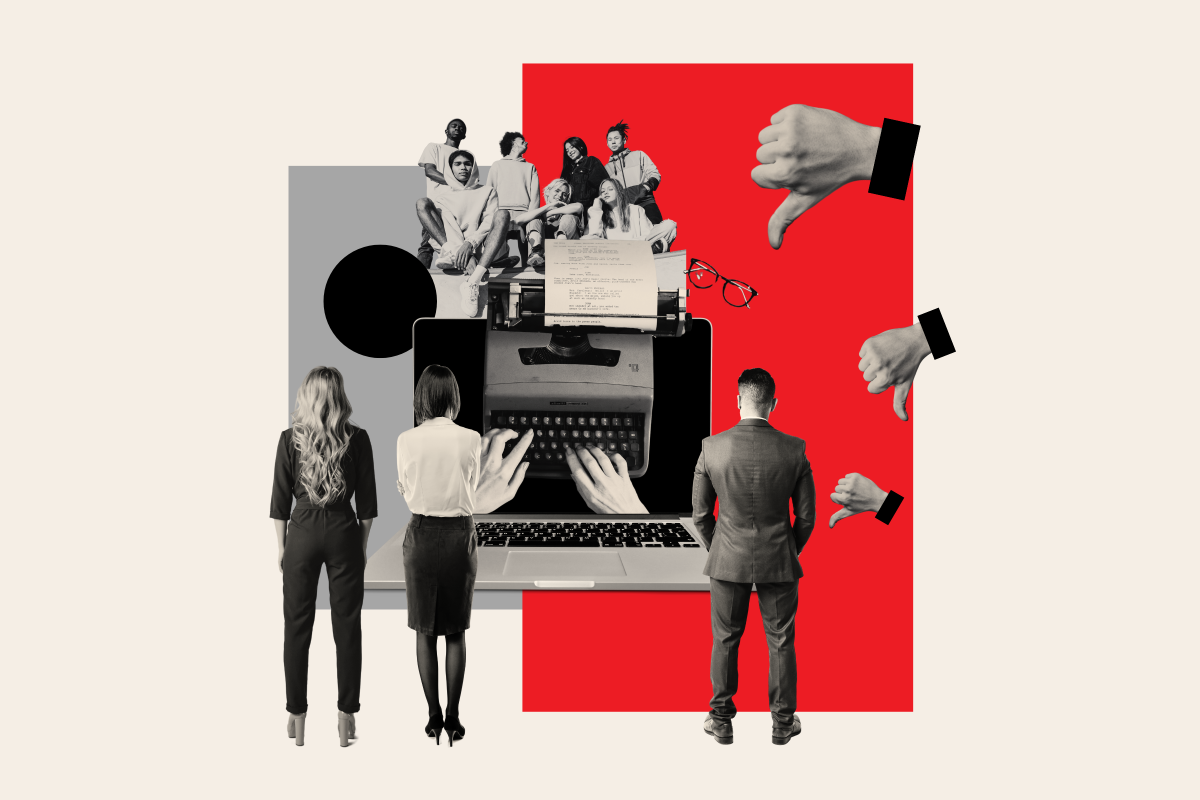Gen Z—those born between 1997 and 2012—is set to become the largest cohort in the workforce by the end of 2024. But with the growing presence, the young generation is already gaining a reputation for being the most challenging to work with.
A new poll conducted by Redfield & Wilton Strategies for Newsweek highlighted that U.S. adults find their Gen Z colleagues tough to work with.
Forty percent of respondents identified Gen Z as the most difficult generation to work with—including Gen Z themselves. But the generation hit back, explaining that young people are prioritizing work-life balance, rather than giving their all in the workplace.
The survey of 1,500 U.S. adults was conducted June 11-12 and asked respondents about their experiences with their work colleagues.
Millennials, born between 1981 and 1996, and Gen X, born between 1965 and 1980, agreed that Gen Z were the worst to work with, with 38 percent and 45 percent, respectively. The older baby boomers and Silent Generation, despite less frequent interactions with Gen Z, agreed at 41 percent.
In contrast, when asked which generation is the best to work with, millennials emerged as the clear favorite, with 42 percent of respondents indicating they are the easiest to work alongside.
Managing Gen Z
The poll also delved into managerial challenges, with 36 percent of those surveyed agreeing that Gen Z is also the hardest to manage.
Gen Z themselves were critical of their own management skills, too, with 33 percent ranking their peers as the worst managers. The sentiment was shared by 32 percent of millennials, 38 percent of Gen X, and 49 percent of baby boomers and the Silent Generation.

But are the younger generation really the most difficult in the workplace? Ajla Brama, a Gen Z business owner, said that her generation's work practices are misunderstood.
"Gen Z doesn't put up with the BS of 'work culture vultures,'" Brama told Newsweek. "We see work as a means to pay for expenses, not as a lifestyle. This makes it hard for employers and older employees to understand our perspective because we're not willing to go above and beyond for a job that likely won't compensate us fairly."
Sean Puddle, managing director of Robert Walters New York, agreed: "Gen Z prioritizes work-life balance, mental health and meaningful work, which can be seen as challenging to traditional workplace norms," he told Newsweek. "By understanding and addressing Gen Z's values, employers can leverage their technological proficiency and innovative mindset to create a more inclusive and forward-thinking work environment."
Adapting attitudes
Steffo Shambo, founder and CEO of Shambo Consulting LLC, manages a team predominantly composed of Gen Z employees. He told Newsweek that working with the younger cohort required adapted leadership.
"With empathy and willingness to understand their motivations, Gen Z can thrive," he said. "Providing ample growth and development opportunities is crucial. They expect frequent career progression, the acquisition of new skills, and managers who can serve as mentors rather than distant supervisors."
Shambo also highlighted that Gen Z responds best to regular feedback and training, preferring managers who can connect their tasks to a broader mission.
"Gen Z needs to feel their work has meaning and purpose," he said.
Gianna Driver, chief human resources officer at cybersecurity firm Exabeam, agreed that Gen Z's entry into the workforce necessitates a shift in company cultures.
"Gen Z values diversity, equity, inclusion, and belonging more than any previous generation," Driver told Newsweek. "They want a diversity of thought where all people feel welcome, and healthy disagreement is not only allowed but encouraged."
While some employers have labeled Gen Z as a "toxic" presence, criticizing their reliability and analytical skills, others see these traits as an opportunity for growth and change.
As more Gen Z employees join the workforce, many leaders seem to be seeing Gen Z's unique perspective as an opportunity.
"The perception that Gen Z is difficult to work with or manage often comes from a lack of understanding and adaptation," Shambo said. "By providing growth opportunities, meaningful work and an inclusive environment, we can harness their potential and transform our workplaces for the better."

